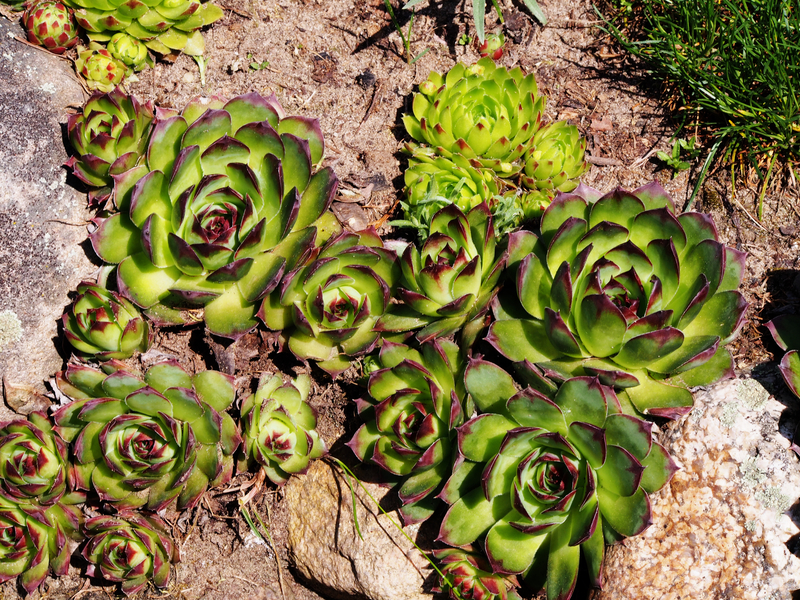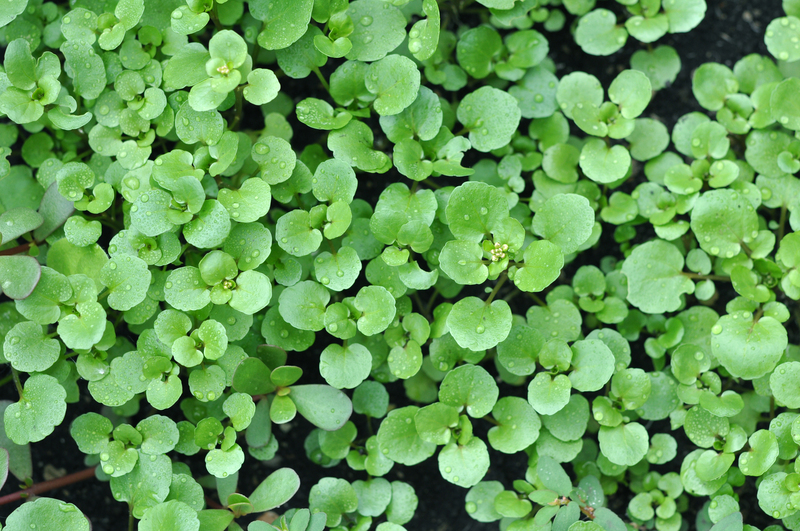9 Crucial Gardening Tips to Ensure a Blooming Start for Beginners
Posted on 01/06/2025
9 Crucial Gardening Tips to Ensure a Blooming Start for Beginners
Starting your first garden is an exciting journey, but for beginners, it can be a bit overwhelming. Fear not! By following proven gardening tips tailored for those just starting out, you can unlock the secrets to a lush, blossoming oasis. Whether you dream of vibrant flower beds or a bountiful vegetable plot, these essential tips will help you lay the perfect foundation.
Why Proper Guidance Is Vital for Beginner Gardeners
Embarking on your gardening journey without guidance might lead to common pitfalls like poor plant growth, pest infestations, or wasted resources. With a few tried-and-tested gardening strategies for beginners, you can increase your chances of cultivating a thriving garden that rewards your efforts and soothes your senses.

1. Choose the Right Location
The success of any home garden starts with selecting the ideal location. Observe your yard or balcony closely. Most plants, especially vegetables and flowering annuals, require at least six hours of direct sunlight per day. Take note of:
- Sun exposure: Track the sunlight in different spots from morning till evening over a few days.
- Accessibility: Make sure your garden is easy to tend to -- if it's too far away, you might neglect it unintentionally.
- Drainage: Avoid low-lying areas where water tends to collect, as most plants dislike soggy roots.
Pro tip: A spot near the kitchen door can encourage you to pick fresh herbs and vegetables more often!
2. Understand Your Soil
Experienced gardeners agree that knowing your soil quality is the backbone of successful gardening. Start by digging a small hole and assessing the earth. Most home gardens have either sandy, clay, or loamy soil types:
- Sandy soil: Drains quickly but often lacks nutrients.
- Clay soil: Holds nutrients but can be dense, making root growth difficult.
- Loamy soil: The perfect blend. It's crumbly, well-draining, and nutrient-rich.
Consider purchasing a simple soil testing kit to check pH and nutrient levels. Most plants prefer slightly acidic soil (pH 6.0-7.0). Amend with compost or organic matter as needed to improve both texture and fertility. Healthy soil leads to healthy plants!
3. Start Small and Expand Gradually
It might be tempting to cover your entire yard with colorful plants, but for new gardeners, less is more. Focus on a small plot or a few containers until you gain confidence. This makes maintenance manageable and minimizes the risk of feeling overwhelmed.
- Pick 5-10 beginner-friendly plants to start.
- Grow vertically with trellises if space is tight.
- Use raised beds or pots for better control over soil and weeds.
Remember: Gardening skills grow over time, just like your plants!
4. Select the Right Plants for Your Region
One of the most important beginner gardening tips is to match your plant choices with your climate and soil. Every plant has unique temperature, sunlight, and water requirements. Take the time to:
- Visit your local nursery for advice on native and adaptive plants.
- Check plant tags for sun, moisture, and maturity size information.
- Use online tools and apps to discover your USDA Hardiness Zone.
Starting with varieties suited to your environment increases your chances of vibrant growth and fewer headaches.
5. Invest in Essential Gardening Tools
No need to buy every fancy tool in the gardening aisle! However, investing in several key implements will make gardening easier and more enjoyable. Beginner gardeners should have:
- Gloves: Protect your hands from thorns and soil-borne pathogens.
- Hand trowel and fork: For digging and breaking up soil.
- Watering can or hose with spray nozzle: For controlled, even watering.
- Pruners: To keep plants neat and encourage healthy growth.
- Spade and garden rake: For soil prep and cleanup.
Maintain your tools by cleaning and storing them properly -- your garden (and your hands) will thank you!
6. Water Wisely
Over-watering is one of the most common mistakes new gardeners make. Plants need just enough water to thrive -- not too much or too little. Here's how to master your watering routine:
- Water in the early morning to reduce evaporation and minimize fungal diseases.
- Check soil moisture with your finger; water when the top inch feels dry.
- Soak the root zone, not the leaves, to encourage deeper roots.
- Group plants with similar water needs together.
Smart watering lays the foundation for a stress-free, flourishing garden.
7. Feed and Mulch for Lush Growth
To keep your garden beds thriving, proper fertilization and mulching are essential garden habits. Here's what every novice gardener should know:
Fertilize thoughtfully:
- Use slow-release, organic fertilizers for a steady supply of nutrients.
- Follow label instructions to avoid burning plants.
- Compost kitchen scraps into natural fertilizer over time.
Mulching benefits:
- Suppresses weeds and retains soil moisture.
- Keeps roots cool in summer and insulated in winter.
- Improves soil as organic mulches (like straw or bark) decompose.
Applying 2-3 inches of mulch around your plants will drastically improve their health and reduce your garden chores.
8. Monitor for Pests and Diseases
Vigilance is key to preventing small problems from turning into full-blown garden disasters. Early detection allows you to treat issues organically and protect your plants:
- Regularly inspect plant leaves, stems, and soil for signs of insects or disease.
- Encourage beneficial insects like ladybugs and lacewings to visit your garden.
- Avoid over-crowding plants, which can facilitate fungus and pests.
- Try natural remedies (like neem oil or insecticidal soap) for minor infestations.
Knowledge is your best defense -- research common garden pests in your area for a proactive approach.
9. Practice Patience and Keep Learning
Finally, the most crucial gardening tip for any beginner is embracing patience. Plants grow at their own pace, and not every seed will sprout, nor every flower bloom. Celebrate small victories and learn from temporary setbacks. Continuously expand your gardening knowledge by:
- Joining local gardening clubs or online forums.
- Subscribing to horticultural newsletters or YouTube channels.
- Experimenting with new plants or garden layouts each season.
Remember: Every gardener was once a beginner. With persistence and a willingness to learn, your garden will flourish and so will your skills!
Common Questions About Beginner Gardening
What is the easiest plant to grow for beginners?
Herbs such as basil, mint, and parsley, or vegetables like radishes and lettuce, are forgiving and rewarding for new gardeners.
How often should I water my garden?
This depends on the weather, soil, and plant type. Generally, gardens need about 1 inch of water per week, but always check soil moisture first.
Should I start with seeds or young plants?
Young plants or seedlings are easier to manage for first-timers, though seeds are more cost-effective and provide more plant variety options.

Bonus Gardening Tips for Beginners
Here are a few extra gardening insights to help you shine:
- Label your plants to avoid confusion as they grow.
- Keep a gardening journal to track planting times, weather, and results.
- Don't hesitate to ask neighbors or local experts for advice.
Conclusion: Your Blooming Journey Begins Now
Equipped with these 9 crucial gardening tips, you're ready to turn your green dreams into reality! Remember to start small, observe your plants' needs, and enjoy every fresh green shoot. Gardening is not just about growing plants; it's about cultivating patience, mindfulness, and joy. Dive in, and may your first gardening season be a stunning and productive one. Happy gardening!
Latest Posts
A Pup's Paradise: Landscaping for Doggie Delights
Enhance Your Outdoor Experience with 3 Essential Weed Tips
Greening the Earth with Recycled Organic Matter

